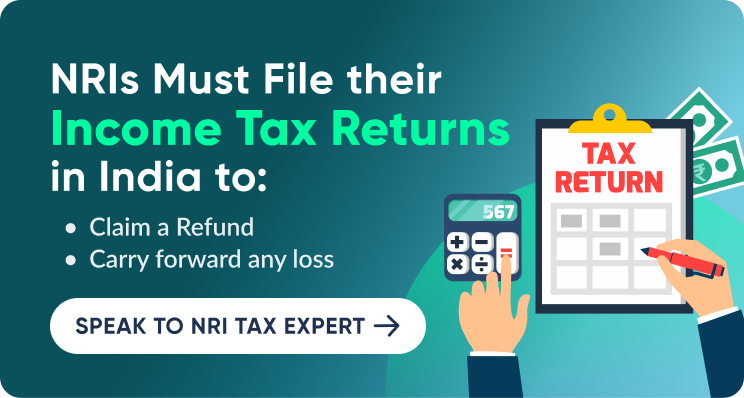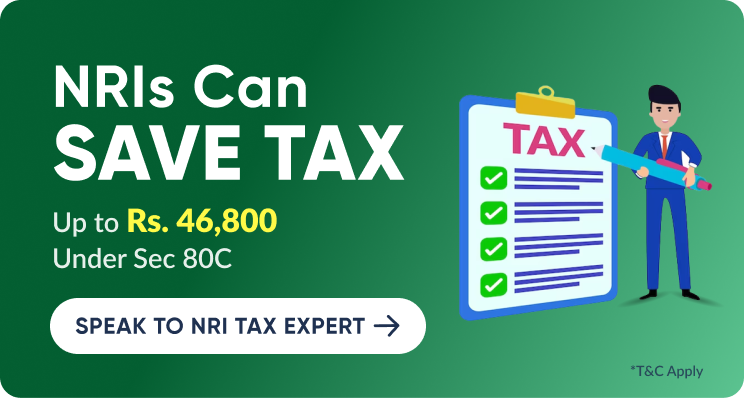NRI Taxpayers without PAN can file Form 10F till September 30. The Central Board of Direct Taxes (CBDT) released a notification on 28 March 2023 offering relief to NRIs without a PAN (Permanent Account Number) by allowing them to file Form 10F manually till 30th September 2023. Earlier, exemption from mandatory e-filing of Form 10F was provided till 31st March 2023. In this blog, we will throw light on Form 10F and challenges faced by Non-Residents during e-filing of Form 10F.

What is Form 10F?
Form 10F is filed by those NRIs receiving payments from India who do not have PAN and required NRIs’ Tax Residency Certificate details to claim benefit under the DTAA (Double Tax Avoidance Agreement). This form helps them to avoid TDS on the payments accrued or received in India.
What is the Amendment?
The Central Board of Direct Taxes in 2022 mandated the electronic filing (e-filing) of certain forms, returns, statements, reports, and orders under the Income-tax Act. One of such forms listed was Form 10F. This step of the Government led to certain practical difficulties on the part of non-resident taxpayers. Therefore, in view of the challenges faced by the non-residents, there was an exemption from mandatory e-filing of Form 10F and allowed non-residents to file Form 10F in manual form as was being done prior to issuance of the notification issued in 2022. Earlier, non-residents could file Form 10F by March 31, but now the date has been extended till September 30.
Reason Behind the Move
The CBDT has granted relaxation for filing Form 10F manually as non-resident Indians (NRIs) who do not have a PAN were unable to submit this form through the e-filing income tax portal. The e-filing income tax portal requires PAN for registration, making it impossible for these NRIs to register and file the form electronically.

Challenges faced due to Mandatory E-filing of Form 10F
Given below are the practical challenges that arise due to e-filing of Form 10F:
- The Government’s action has resulted in increased compliance obligations for non-resident taxpayers who must now obtain a PAN (which may not be obligatory in all situations) and enroll on the Income-tax portal to electronically file Form 10F.
- The obligation of obtaining a PAN for filing Form 10F clashes with the Government’s objective of exempting non-residents from obtaining PAN under Rule 37BC. As per Rule 37BC of the Income-tax Rules, non-resident taxpayers will not be subject to the higher TDS rate of 20% for payments like interest, royalty, fees for technical services, dividend, and payment on the transfer of any capital asset even if they do not furnish PAN. However, the mandatory e-filing of Form 10F now necessitates every assessee to obtain a PAN for submitting the Form through the portal.
- Furthermore, Rule 131 of the Income-tax Rules outlines the process for electronically filing forms and specifies that the forms must be signed using either an Electronic Verification Code or a Digital Signature Certificate (DSC). Consequently, if the taxpayer is not an individual, the director, partner, or authorized signatory of that taxpayer, who may be a non-resident with no income from India, will need to obtain a DSC in India to electronically verify Form 10F.

Conclusion
While the extension provides relief to non-resident taxpayers, it appears to be a temporary solution for now. It is unclear whether the extension is intended to provide a time window for non-residents to obtain PAN or to create a non-PAN-based utility for issuing Form 10F electronically.
Contact SBNRI
Due to a complicated tax system and recurrent amendments, understanding tax laws can be confusing and NRIs may be subject to additional fees or miss claiming deductions and other benefits. At SBNRI, we understand this struggle. You can download SBNRI App to connect with our NRI Tax Experts to know more about new TDS/ TCS rules for NRIs. You will also get end-to-end assistance related to NRI tax filing.
SBNRI will also help you get a lower TDS Certificate. You can also click on the button below to ask any questions. Visit our blog and YouTube Channel for more details.



